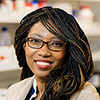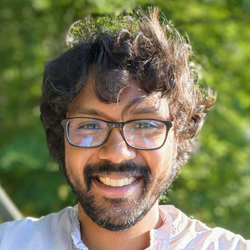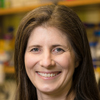Research / Areas of ResearchBiotechnology and Synthetic Biology
The world faces a range of global challenges where biotechnologies stand to offer impactful solutions. Synthetic biology is reframing how we approach biotechnology development by uncovering new engineering principles by which we may harness the power of natural organisms to solve these challenges. New drug and new drug delivery technologies will help us fight disease, smart therapeutics promise whole new approaches to treating a range of diseases, cell-free diagnostic approaches promise to diagnose diseases and environmental contaminants, and new biomanufacturing technologies will help us sustainably supply the world with countless products. Northwestern chemical and biological engineers - trained and grounded in quantitative physical, biological and computational sciences - will make discoveries and innovate new approaches and drive the field forward.
Research Areas
Specific research areas pursued in the department include:
- Mammalian synthetic biology
- RNA synthetic biology
- Cell-free synthetic biology
- Point-of-use diagnostics
- Metabolic engineering
- Experimental and Computational Systems biology
- Protein Engineering
- Biomaterials
The department also has strong theoretical and computational research on bio-interfaces, computational and systems biology, self-organization and emergent behavior in biological, chemical and physical systems, and medical informatics.
Faculty
Our faculty research a wide range of topics in biotechnology and synthetic biology illustrated by the research thumbnails below:
 |
Ludmilla AristildeThe Aristilde Lab seeks to elucidate metabolic pathway networks in complex nutrient conditions using metabolomics-enabled systems biology approaches. |
 |
Linda BroadbeltThe Broadbelt Lab, in collaboration with the Tyo Lab, is developing computational frameworks to guide and optimize metabolic network design to achieve production of desirable compounds in biological systems. |
 |
Omar FarhaThe Farha lab investigates the immobilization of enzymes and other biomolecules in biocompatible carriers for their long-term stability and controlled activity in biocatalysis and drug delivery. |
 headshot of Ashty Karim. |
Ashty KarimThe Karim Lab develops molecules, systems, and processes to enable global sustainability. |
 |
Joshua LeonardThe Leonard Lab is enabling an emerging paradigm of design-driven medicine by integrating synthetic biology with systems biology to address pressing challenges in medicine and biotechnology. |
 |
Julius LucksThe Lucks Lab develops methods for high-throughput dynamic RNA structural biology, and investigates molecular design and evolution approaches for RNA synthetic biology and cell-free point-of-use diagnostic technologies. |
 |
Chad MirkinThe Mirkin lab uses spherical nucleic acids for the monitoring and manipulation of biological processes at the single-cell, tissue, and whole organism level. |
 |
Milan MrksichThe Mrksich lab uses the tools of organic chemistry, materials science and biochemistry to address important challenges in and at the intersection of chemistry and biology. |
 |
Arthur PrindleThe Prindle Lab develops enabling technologies to characterize microbial communities and to engineer these microbes with the capacity to monitor and improve human health. |
 Headshot of Krishna Shrinivas |
Krishna Shrinivas
|
 |
Danielle Tullman-ErcekThe Tullman-Ercek lab engineers nanoscale protein machines and assemblies to create novel materials, biochemicals, vaccines, and diagnostics. |
 |
Keith TyoThe Tyo Lab is understanding and engineering how molecules interact with proteins to enable new enzymatic reactions and biosensing modalities. |
 Headshot of Lisa Volpatti |
Lisa Volpatti
|
 |
Muzhou WangThe Wang lab engineers new tools to characterize the nanostructure and mechanical properties of biomaterials at high resolution and high throughput. |








